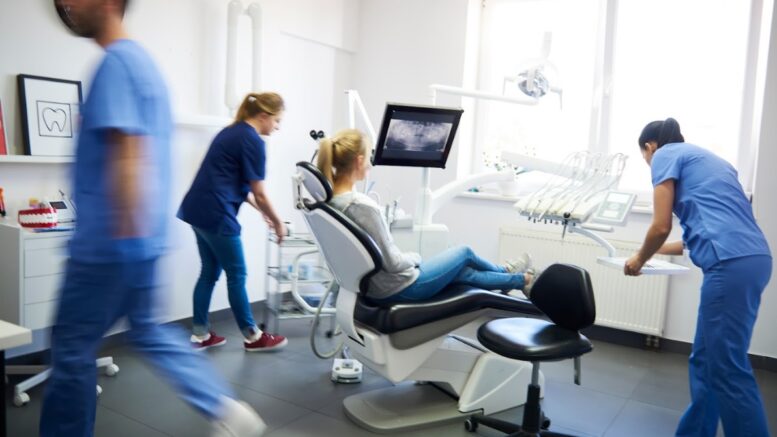Hospitals, healthcare facilities, and medical clinics know that they have to enhance their efficiency, prevent staff burnout and still provide the best care to their patients. Many have turned to technology and digital innovations to streamline administrative processes and patient care. Certain trends have emerged from this process, with some having more impact than others, but no less important. Here are a few of them.
Advanced Operations Management
Healthcare administrators and professionals deal with numerous tasks daily, each critical for efficient healthcare service delivery. Advanced operations management system solutions can help streamline these processes and make them more efficient.
This category of technological solutions covers numerous areas including better staff workflow management, operation theater management, the digitization of discharge summaries, visitor management, recruitment, billing management, and many others.
These solutions save healthcare facilities time and money, reduce manual data entry, streamline patient care, and ensure all hospital processes and systems have adequate staff and resources to continue functioning effectively.
The Continuing Use of Electronic Health Records
The use of Electronic Health Records (EHR) in healthcare and the adoption of these systems solves a specific problem: errors related to patient data and information. Dealing with these vast amounts of data manually is time-consuming and takes time and effort away from providing the care patients require.

EHR platforms store different types of patient data, from their names and personal details to minute medical information, diagnoses, and treatments. By doing so, they not only allow better patient management and care but also allow healthcare professionals to access this data wherever they are.
One problem that healthcare administrators must be aware of is who is accessing this data so they can stay within HIPAA regulations. They stipulate that patient data should not be shared with anyone without the patient’s knowledge or consent.
Healthcare administrators must therefore address these specific requirements when implementing EHR and other medical systems. Completing a Masters in Hospital Administration arms students and healthcare professionals with the skills to implement these technologies while keeping the requirements discussed above in mind. The Masters in Hospital Administration degree creates leaders in healthcare, and you can learn more about it at https://onlinemha.bc.edu/, where you can also read about the requirements and expected outcomes.
Innovating Network and Security
Healthcare facilities deal with sensitive data, making them prime targets for malicious actors. Additionally, they have a lot of connected devices that increase their attack footprint to a magnitude not typically seen in other organizations.
For these reasons, healthcare facilities have been deploying innovative network and cybersecurity solutions to stay ahead and keep patient data and their connected devices safe. These include tailored artificial intelligence solutions and Security of Things to improve the security of their Internet of Things devices and sensors.
A typical security implementation includes baseline and outlier detection to alert a security team if something is not right in a healthcare facility’s IT infrastructure.
Technology has always been used in healthcare in different ways. However, certain technological trends and solutions have persisted for a long time, gradually improving over the years to make them more secure, robust, and efficient. The solutions discussed above have persisted for a long time and will continue to be trends in healthcare for a long time.
